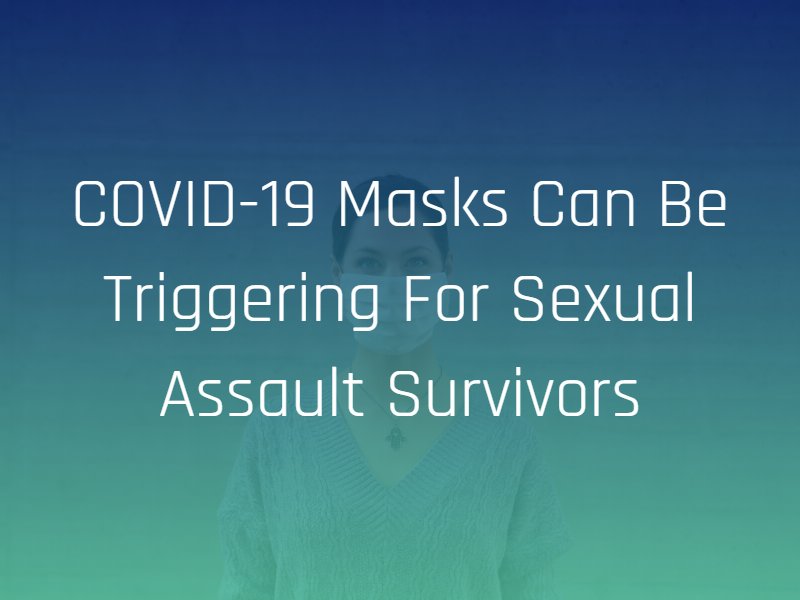As the COVID-19 pandemic continues to spread across the country, many state and local governments are requiring residents to wear masks to prevent transmitting the virus. In areas where mandatory mask orders do not exist, retailers, restaurants, and other businesses are requiring patrons to wear a mask when visiting their locations.
Although scientific evidence undeniably shows that wearing a face covering can reduce virus transmission, masks pose a serious risk to sexual assault survivors’ mental health. Sexual violence advocates state that masks can trigger memories of the assault for some survivors.
COVID-19 Masks and Sexual Violence Survivors
After experiencing a traumatic event, certain situations, words, people, and even smells and objects can cause memories of the event to resurface. When these memories come back, sexual violence survivors can experience feelings of fear, panic, and discomfort, which can lead to an anxiety attack or other adverse mental health events.
Each survivor may have unique triggers. Some survivors may not experience any triggers at all, while others may have multiple pervasive triggers that can impact their daily life. Mandatory masks due to COVID-19 are presenting a number of triggers for certain survivors.
According to experts at the Rape Crisis Center, wearing a mask may mimic a survivor’s sexual assault experience. During some assaults, a perpetrator may cover the survivor’s mouth, strangle him or her, or force the survivor into a position where it was difficult for him or her to breathe.
Although there is no evidence that masks limit a person’s ability to breathe, having a covering over a survivor’s mouth can bring these memories back. In certain cases, the texture, temperature, and smell of a face mask can also cause memories of an assault to resurface.
A survivor’s assault may involve a blanket, pillows, or bed sheets, and the texture and smell of a mask can bring his or her mind back to the experience. Breathing in hot air from inside of a mask may also trigger traumatic memories, especially if a perpetrator restricted the survivor’s airflow with a pillow or blanket during an assault.
Can Survivors Comply with the COVID-19 Mask Requirement?
The triggering nature of fabric face masks can pose significant challenges to certain survivors during the pandemic. To avoid transmission of the virus, officials recommend wearing a mask while out in public and many essential employers require employees to wear a mask while on the job — but if a survivor finds that wearing a mask is too psychologically painful, he or she can face significant social and financial strife.
Survivors can ask trusted friends and family members to run errands from them if they have difficulty wearing a face mask. Practicing strict physical distancing from other people, washing hands frequently, and avoiding touching the face, mouth, or eyes can also decrease a survivor’s risk of virus transmission.
If you are a survivor who needs to perform essential errands alone or has to wear a mask for work, you can follow these tips to improve your face covering experience.
- Attend virtual therapy sessions to process your trauma surrounding face coverings and develop important coping skills.
- Spray a calming scent inside of your mask, such as lavender or chamomile.
- Wear your face covering for short periods of time at home to acclimate yourself to wearing it.
- Design your own mask with your favorite pattern and a comfortable material.
Survivors should not handle traumatic experiences alone. If you need help handling COVID-19 as a survivor, contact your local sexual assault service provider. To seek justice against the perpetrator of your assault, speak to a sexual assault attorney as soon as possible.

